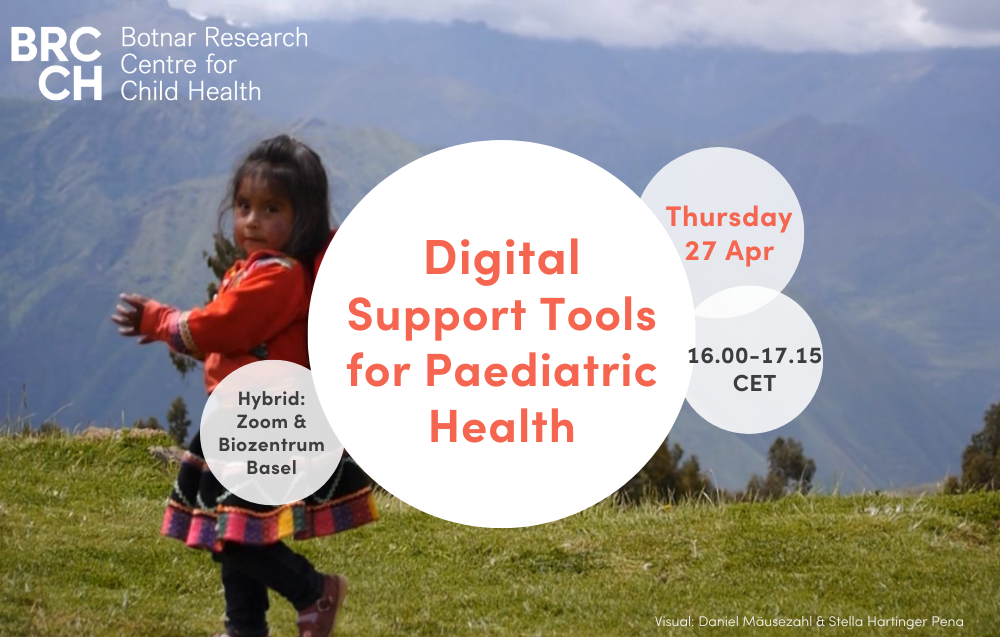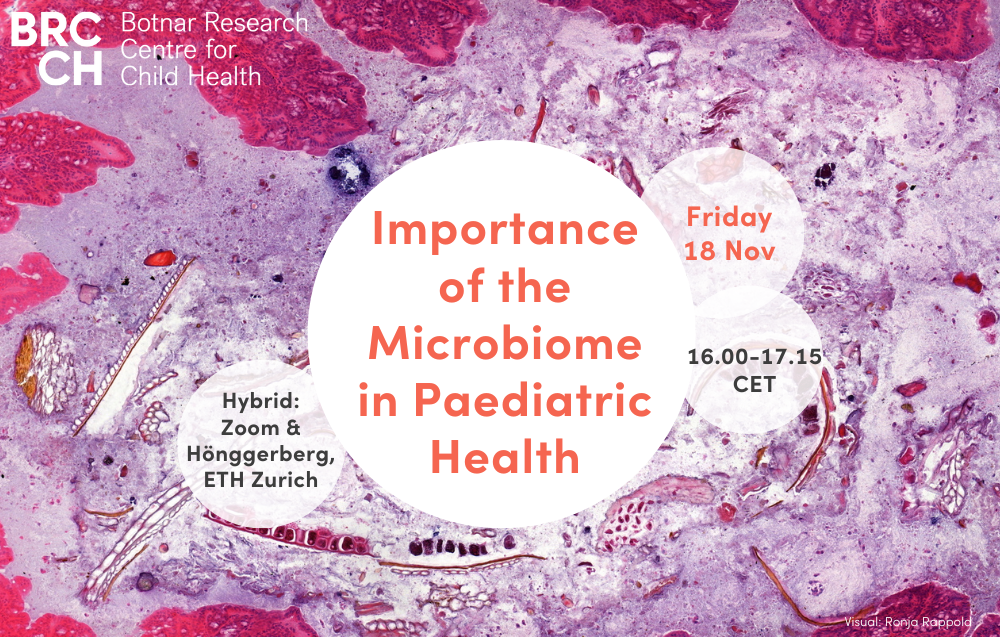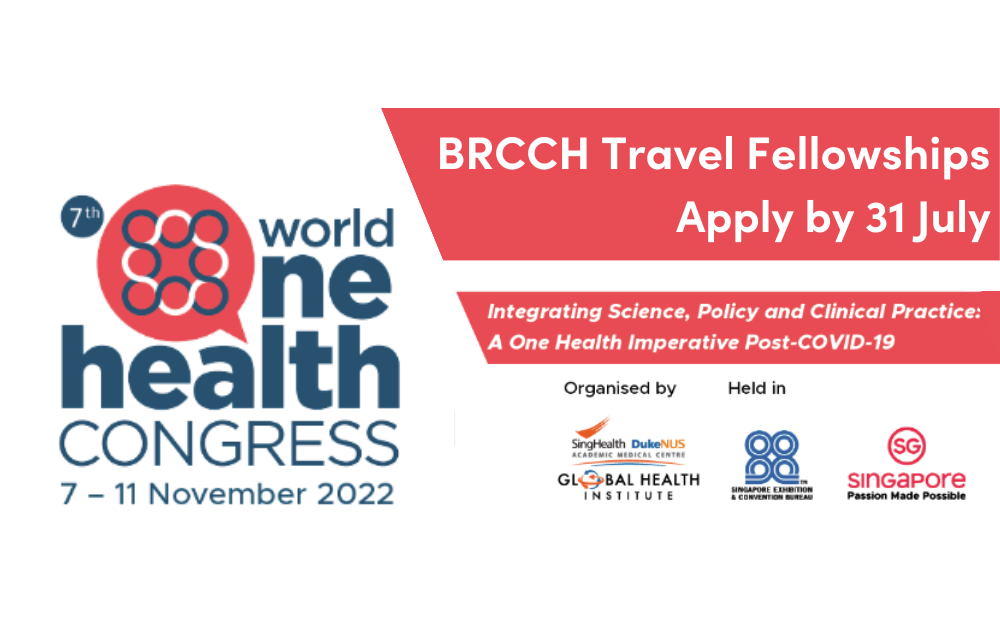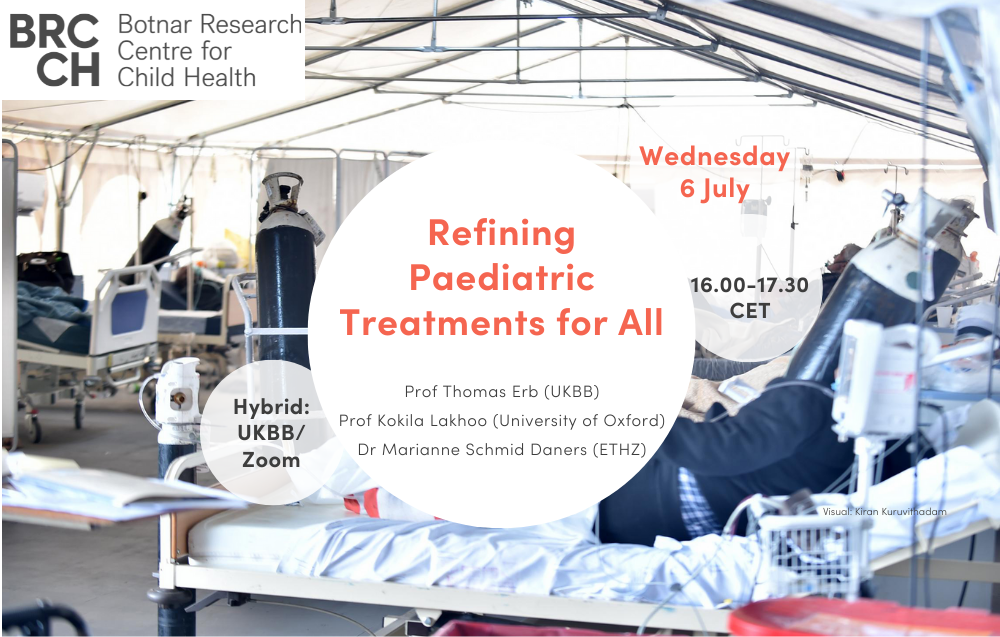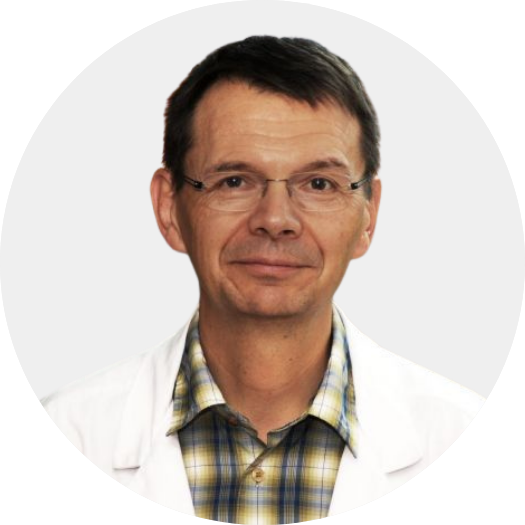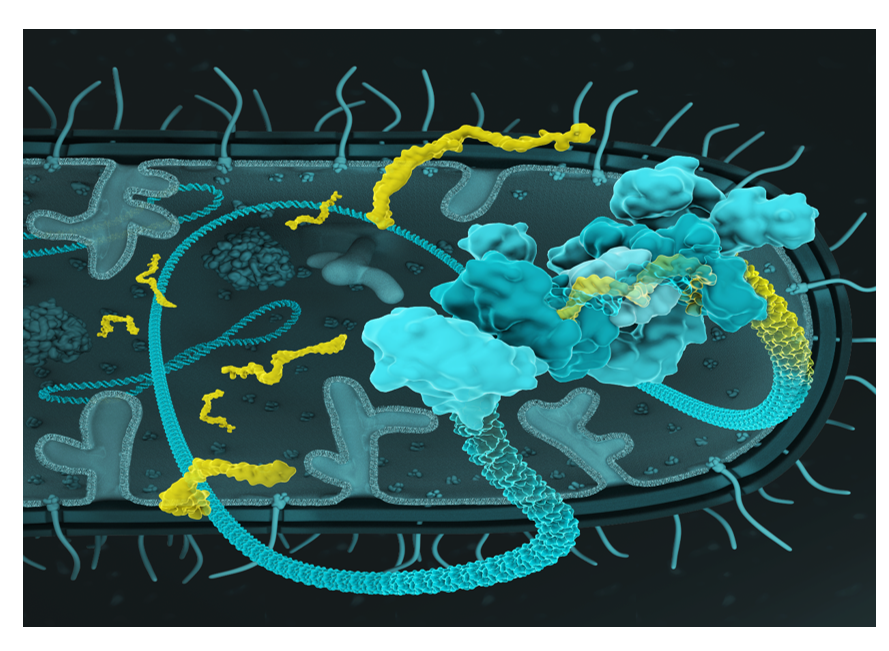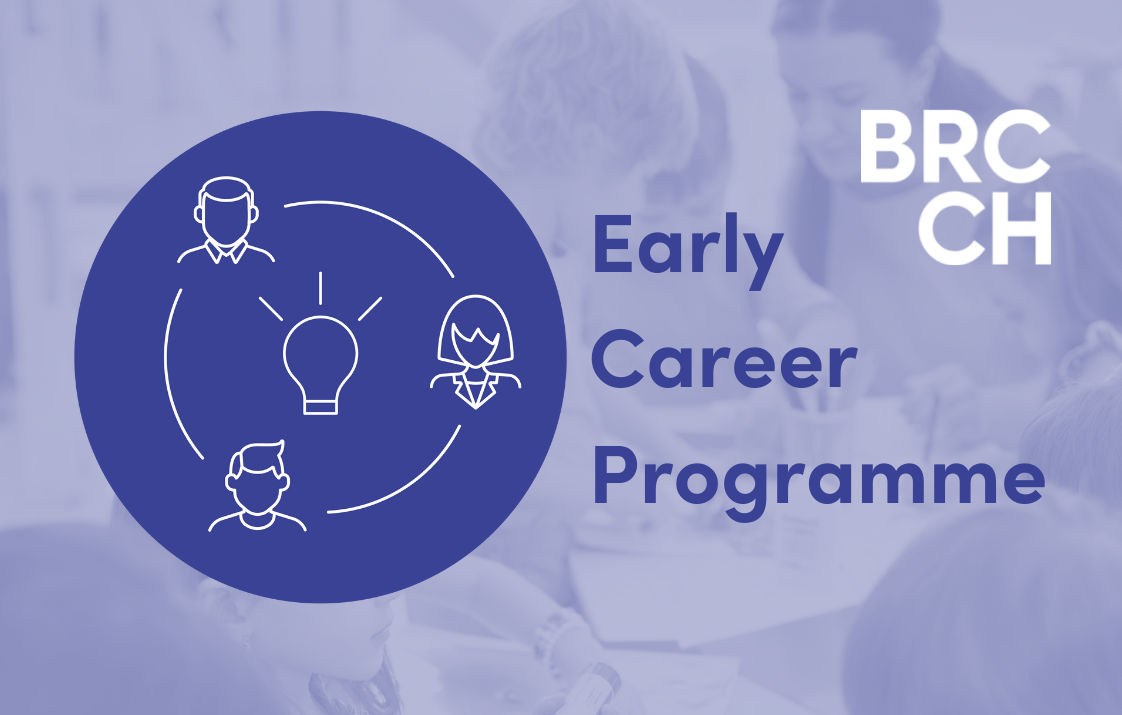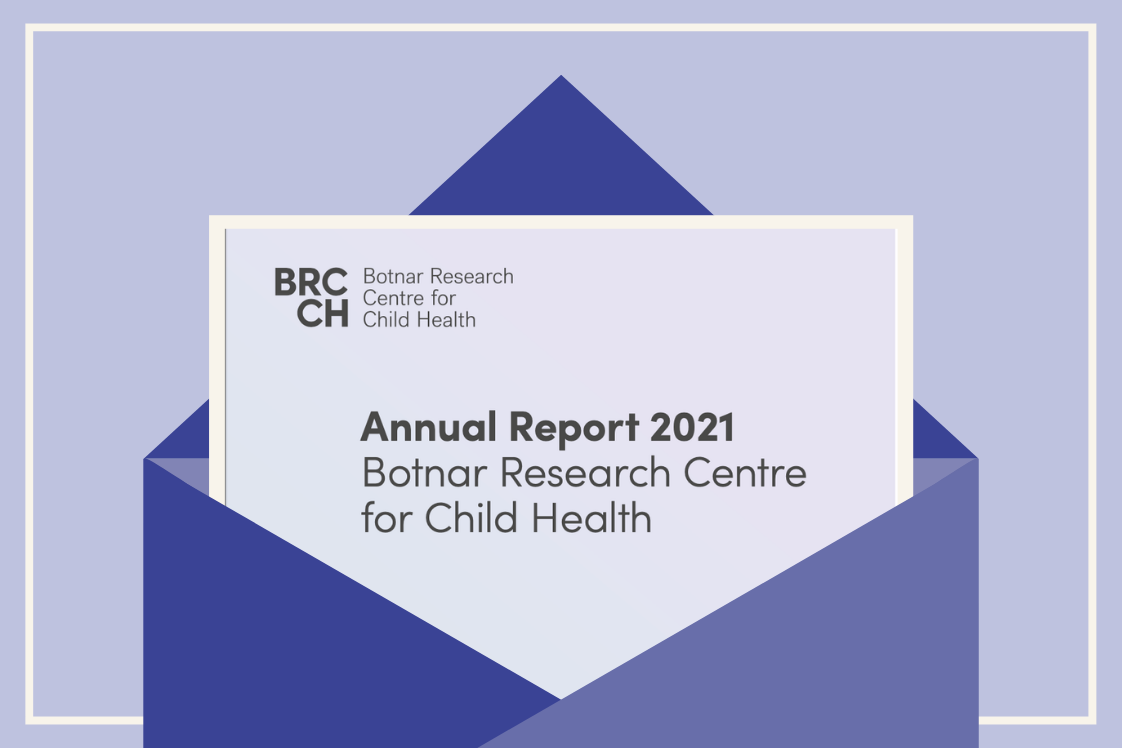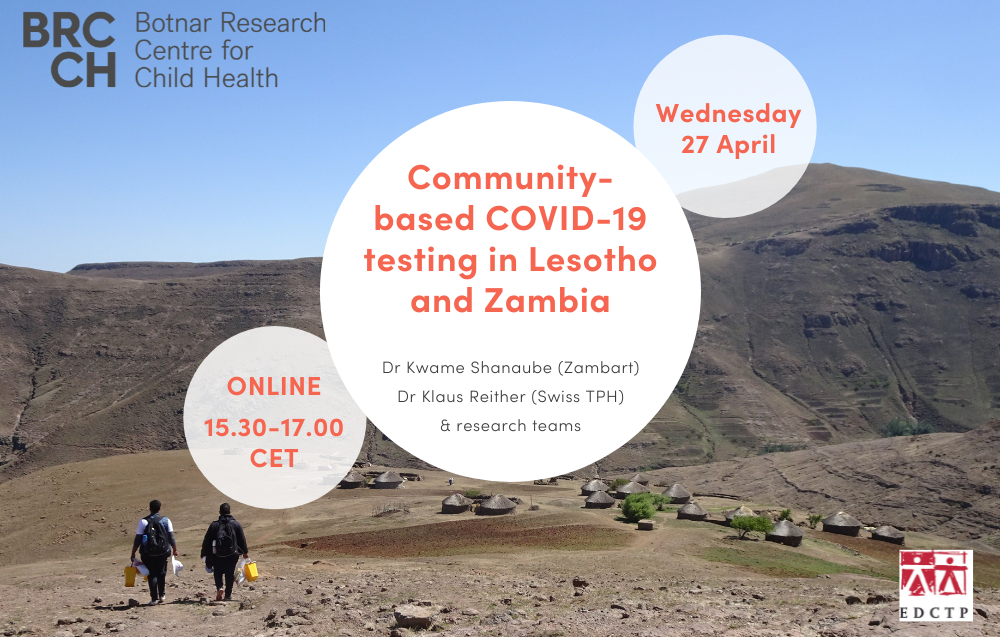Seminar 27 Apr - Digital Support Tools for Paediatric Health
**Update May 22nd, 2023** Thank you to everyone that attended our hybrid seminar! We had a great turnout-- in case you missed the presentations or you would like to watch them again, you can now stream them below or on our YouTube channel.
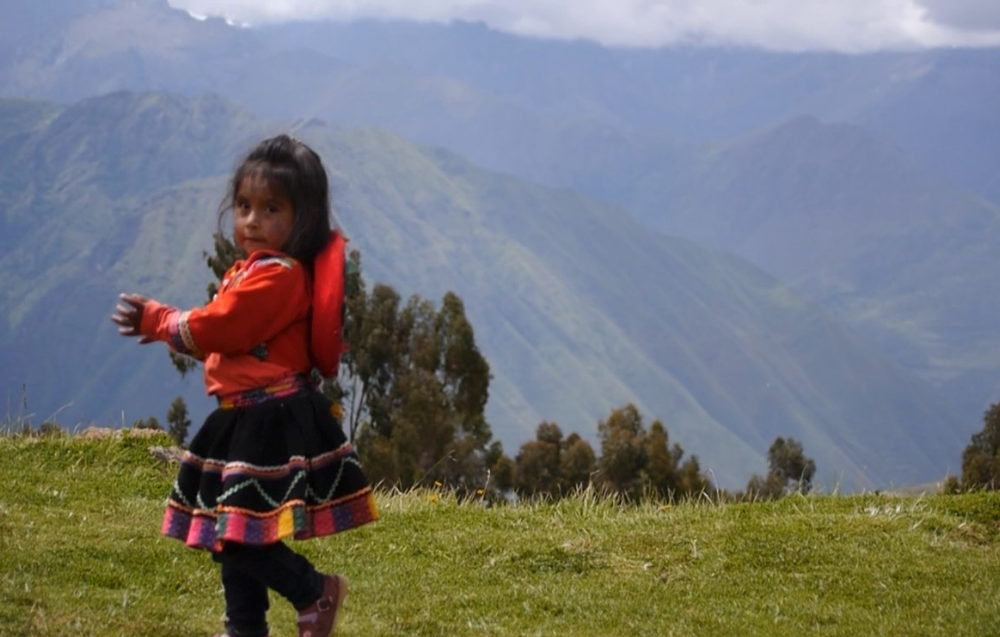
Image: Daniel Mäusezahl and Stella Hartinger Peña
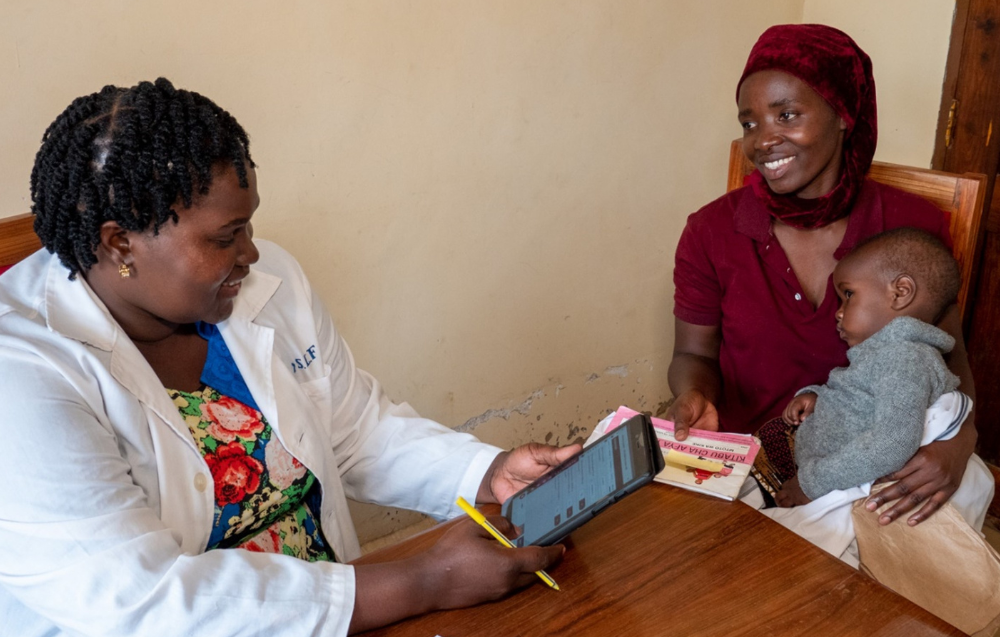
Image: Ebby Shaban and Magali Rochat/ DYNAMIC
Description: The BRCCH cordially invites you to join our seminar about advancing child health using digital health support tools and systems. Prof Günther Fink (Swiss TPH, Switzerland) will share his BRCCH consortium’s research progress on supporting the development of children in low-resource settings through the use of novel digital health technology. Prof Valérie D’Acremont (Unisanté, Switzerland) will highlight her work on an e-health system intervention aimed to improve paediatric clinical care, to promote sustainable resource use in a constrained setting and to enhance the detection of outbreaks.
When: Thursday, 27th April 2023, 16:00 - 17:15 CET, to be followed by an apéro
Where: Hybrid Zoom / Seminarraum U1.191– Biozentrum, University of Basel, Spitalstrasse 41, 4056 Basel
Zoom Registration: HERE
In-person Registration: HERE
Directions and location information
Schedule:
-
-
- Welcome by Dr Gillian Levine (Swiss TPH & BRCCH PEP Fellow)
- Keynote by Prof Günther Fink (Swiss TPH & BRCCH Lead Researcher): “Digital Support Systems to Improve Child Health and Development in Low-Income Settings”
- Keynote by Prof Valérie D’Acremont (Unisanté): “DYNAMIC: An e-Health System Intervention to Improve Clinical Care for Children, Promote Sustainable Use of Resources and Enhance Outbreak Detection”
- Q&A and Closing
- Networking Apéro
-
Speakers:

Dr Gillian Levine
Swiss TPH, Switzerland
Welcome and Moderator
Dr Gillian Levine is an epidemiologist and BRCCH Postdoctoral Excellence Programme (PEP) Fellow at the Swiss TPH. She currently works on projects to develop and test novel electronic clinical decision support tools to improve implementation of evidence-based medical care for young infants. Her research focuses on clinical epidemiology and newborn and young child health and survival in low-resource settings, and on the development and testing of interventions to improve health care quality and appropriate antibiotic use for infants and young children. Gillian has a Masters of Public Health from the Mailman School of Public Health at Columbia University and a PhD in Epidemiology from the University of Washington.
Gillian co-leads the BRCCH project: Electronic Clinical Decision Algorithms and Machine Learning to Improve Quality of Care and Clinical Outcomes for Sick Young Infants in Resource-Limited Countries. Read more here.

Prof Günther Fink
Swiss TPH, Switzerland
Talk: “Digital Support Systems to Improve Child Health and Development in Low-Income Settings”
Prof Fink is an associate professor and Head of the Household Economics and Health Systems Research unit. His work focuses on developing and evaluating new and innovative approaches for improving child health and development and on measuring the long-term benefits of early life improvements. Within the context of the BRCCH, he leads a project to develop digital tools to help parents best support the development of their children in the first 1000 days of life (find out more here). At the Swiss TPH, he is currently the PI of the Zambia Early Childhood Development project, as well as the Co-PI of the São Paulo Western Region Cohort project, two longitudinal studies exploring the long-term effects of early life adversity. He is also currently working on cluster-randomized trials aiming to improve nutritional and early learning outcomes among children under age 5 in Brazil, Pakistan, Peru, South Africa and Zambia.

Prof Valérie D’Acremont
Unisanté Lausanne, Switzerland
Talk: “DYNAMIC: An e-Health System Intervention to Improve Clinical Care for Children, Promote Sustainable Use of Resources and Enhance Outbreak Detection”.
Prof D'Acremont is a tropical diseases physician, epidemiologist and global health expert, Head of Global and Environmental Health at Unisanté, guest scientist at SwissTPH, and former expert at WHO. She is leading large research projects aimed at decreasing morbidity and mortality in patients living in resource-limited countries or coming back to Europe from the tropics, using clinical decision support algorithms connected to biosensors and point-of-care tests. The aim of these projects is also to enhance outbreak detection, while preserving essential resources, such as antimicrobials, and limiting the carbon footprint and impact on the environment.
These seminars were recorded on April 27th, 2023 in Basel, Switzerland.
